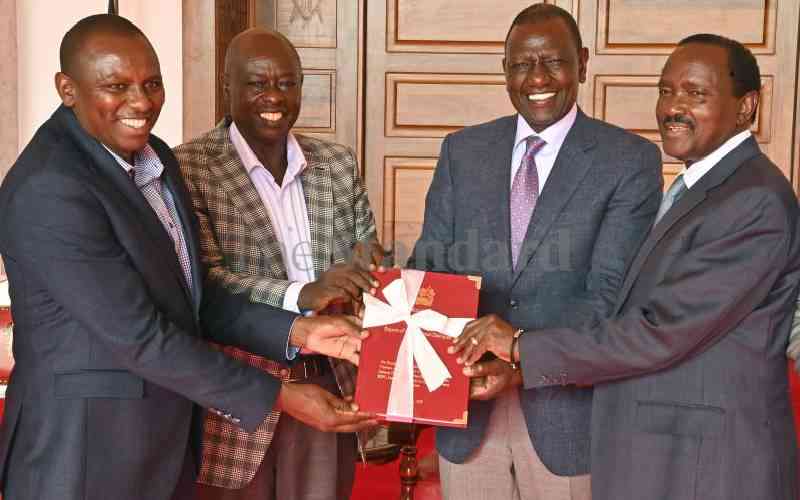×
The Standard e-Paper
Home To Bold Columnists

There was mistrust before the smiles, as fierce rivals presented the National Dialogue Committee (Nadco) report to their principals.
President William Ruto's dialogue with former Prime Minister Raila Odinga seems to be coming full circle. A court ruling temporarily halting the implementation of the said report, already adopted by the bicameral Parliament, has the opposition reading mischief.